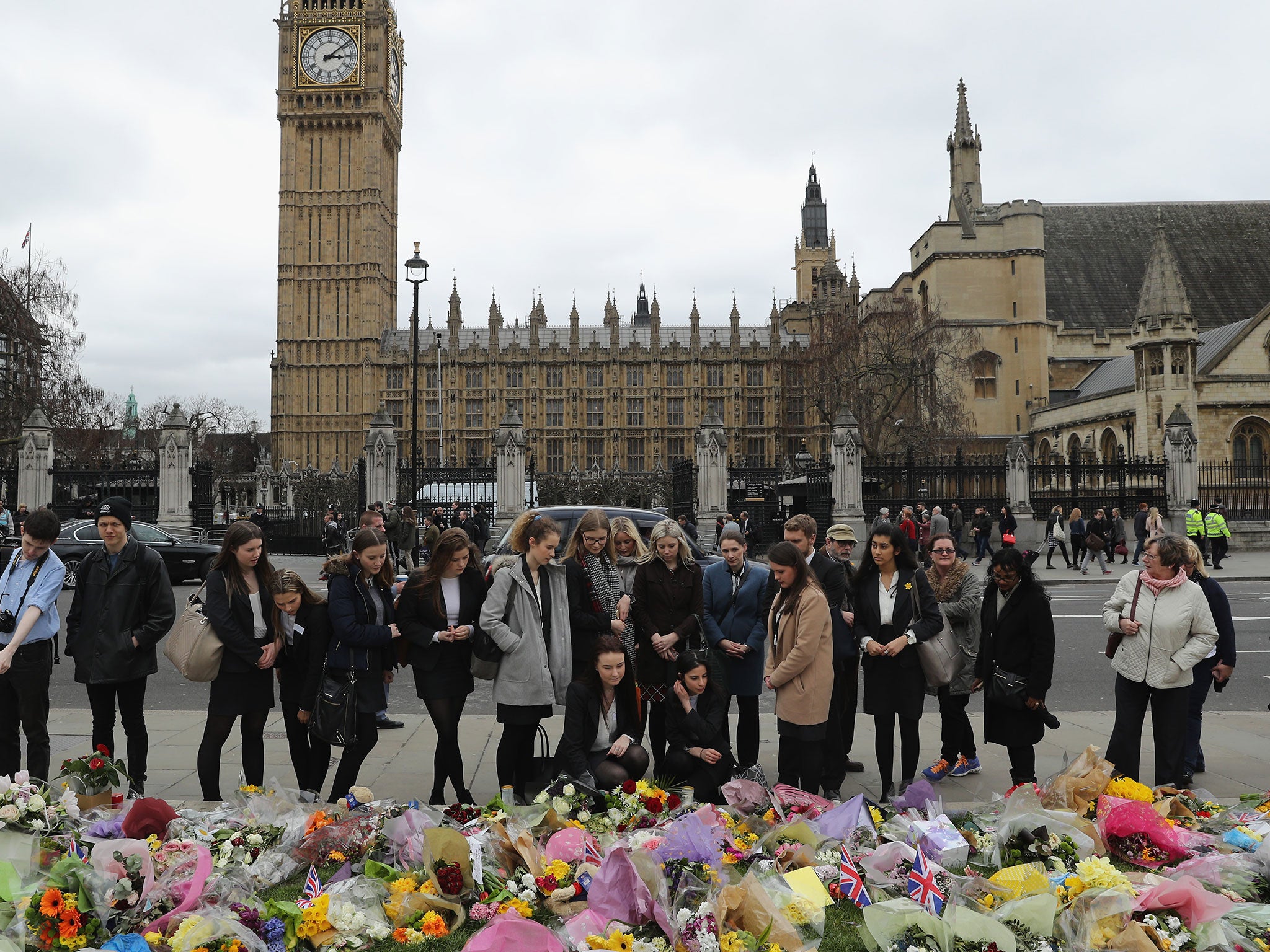Westminster attack inquests - latest updates: Coroner gives conclusions on how victims of terror attacker Khalid Masood died

The inquests into the deaths of the victims of the Westminster attack are due to conclude.
Chief coroner Mark Lucraft QC is due to give his conclusions at the Old Bailey on the deaths of four civilians and police officer Keith Palmer, who were murdered by terrorist Khalid Masood.
He will consider whether factors including security at the Houses of Parliament, the lack of barriers on Westminster Bridge, police body armour and security service investigations into Masood played a role in their deaths.
Please allow a moment for the live blog to load.
On Tuesday the court heard closing submissions, with Jonathan Hough QC, for the coroner, saying the inquests should conclude all five victims were unlawfully killed.
He said: “Each was murdered in a terrorist atrocity which was no less brutal for its lack of sophistication.”
Masood, 52, drove into pedestrians on Westminster Bridge on March 22 last year, killing American tourist Kurt Cochran, 54, retired window cleaner Leslie Rhodes, 75, Aysha Frade, 44, and Romanian tourist Andreea Cristea, 31.
He then stormed through gates near the Houses of Parliament and fatally stabbed Pc Palmer with two knives.
In his closing argument, Gareth Patterson QC, for families of victims on the bridge, urged the coroner to make a report on the circumstances of the case to “protect the public”.
On the role of MI5, whose knowledge of Masood has been heavily scrutinised, he said: “We do think there is room for improvement in terms of decision-making.”
He suggested security services should look again at when to investigate suspects and when to stop, and to take account of violent backgrounds.
Mr Patterson also called for the Government to “try again” with tightening rules for hiring cars.
Dominic Adamson, representing PC Palmer's widow Michelle, said that there was “a systematic failure” in protecting unarmed officers on guard at the Palace of Westminster.
He told the coroner: “In my submission it is very clear that you can be satisfied that as a result of those failures the consequences for Pc Palmer were that there was a substantial loss of the opportunities for him to be saved.”
No firearms officer had been near Carriage Gates, where Pc Palmer was on duty, for nearly an hour before Masood's attack.
Susannah Stevens, representing the officer's family, said: “If there had been authorised firearms officers present at that time, in our submission, on the balance of probabilities they would have been able to prevent a loss of an opportunity of saving Pc Palmer's life.
”Or to put it another way, on the balance of probabilities, their absence contributed to Pc Palmer's death.“
The court will hear further closing submissions in the morning, before the coroner begins giving his conclusions.
The coroner is pausing there for lunch and will resume giving his conclusions at 2.05pm.
Parties are arriving back into court for the coronor to resume giving his conclusions.
Judge Lucraft QC is resuming evidence about the City Cruises boat that first encountered Ms Cristea in the river but believed she was already dead.
Boat staff said there were "no signs of life" and that to bring a body on board a "boat full of children" would be distressing. They said they did not have the means to bring Ms Cristea on the boat.
They did not believe they could have transferred her to the fire brigade boat any quicker. The captain said that by the time he could have got the "man overboard" ladder into position, she would have floated away.
A firefighter on the LFB boat said they were on the scene within three minutes of the call and confirmed that Ms Cristea was not showing any signs of life when they recovered her from the water.
He saw a "lot of children" on the City Cruises boat, many of whom were filming on their phones.
The firefighter noted that Ms Cristea had a large head injury and was not conscious and started administering oxygen, finding a weak pulse.
"They were talking to her and trying to get a response, letting her know they were doing their best to help her".
Firefighters saw Ms Cristea's eyes moving and she started breathing more strongly before being handed over to an ambulance.
Ms Cristea was taken to hospital by ambulance and a doctor recorded a "significant head injury" and was in "respiratory distress" on arrival. She had a number of "very severe injuries", was hypothermic and had lost a lot of blood.
A chest x-ray showed shadows on both lungs and she had to be intubated. Her skull was found to be fractured and she had brain injuries.
A consultant in critical care from St Bart's Hospital, where she was transferred on 23 March, said she had undergone surgery to remove blood from around her brain at the Royal London.
Dr Baston said the degree of injuries to her cranium and lungs meant the "likelihood of survival was low" but did all they could to ensure they could to ensure that if she survived it would be with as few long-lasting effect as possible.
On 6 April, support was withdrawn and she died that afternoon with her family beside her side.
Doctors believe it was unlikely that Ms Cristea being pulled from the water minutes earlier would have made a significant difference to her prognosis.
A doctor found she died as a consequence of an act of violence, with a head injury that rendered her immediately unconscious. That made her more likely to take in water because she was unable to swim when she fell into the water.
A doctor believed she would not have survived if she had been recovered from the water to minutes earlier or attended to by a more specialist team of medics.
